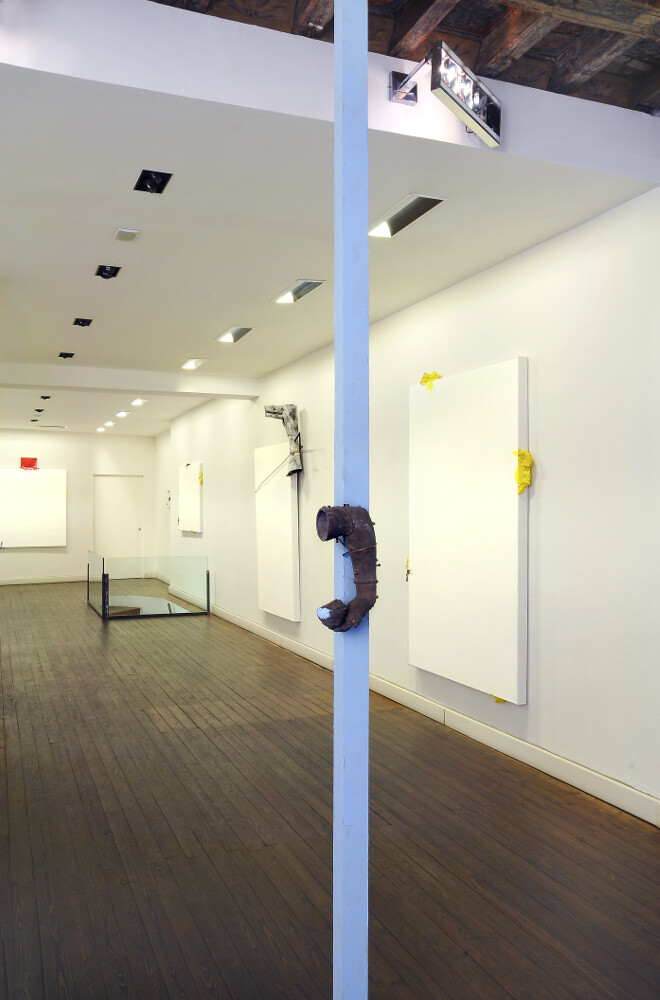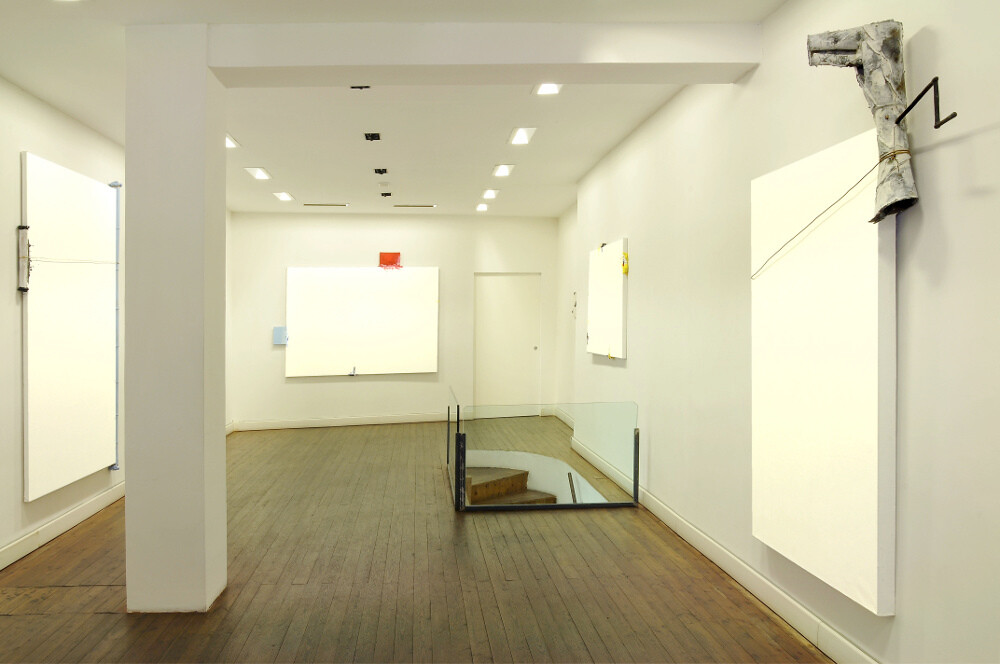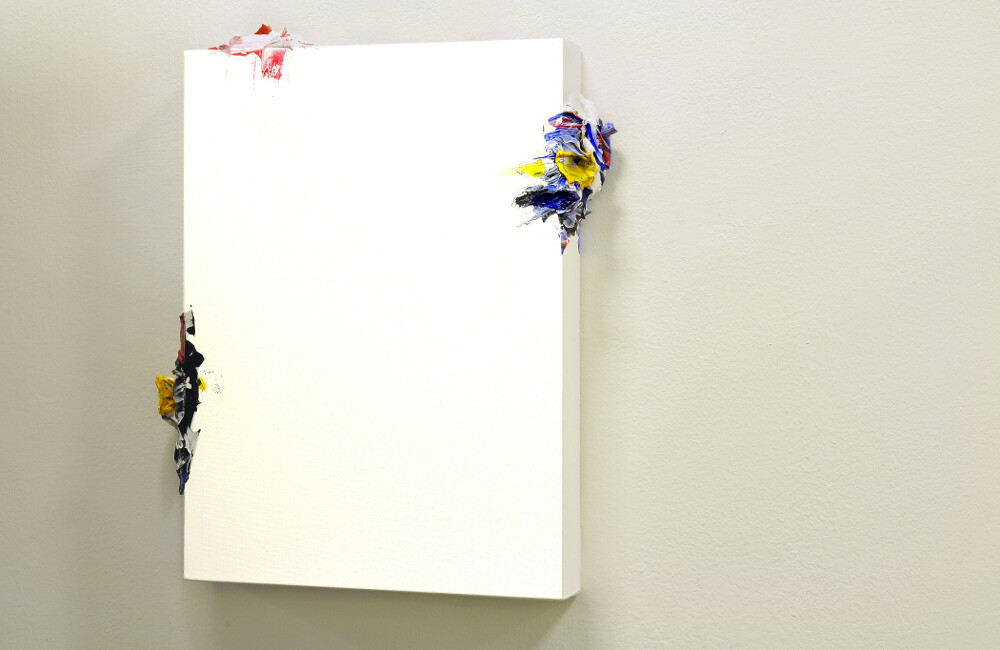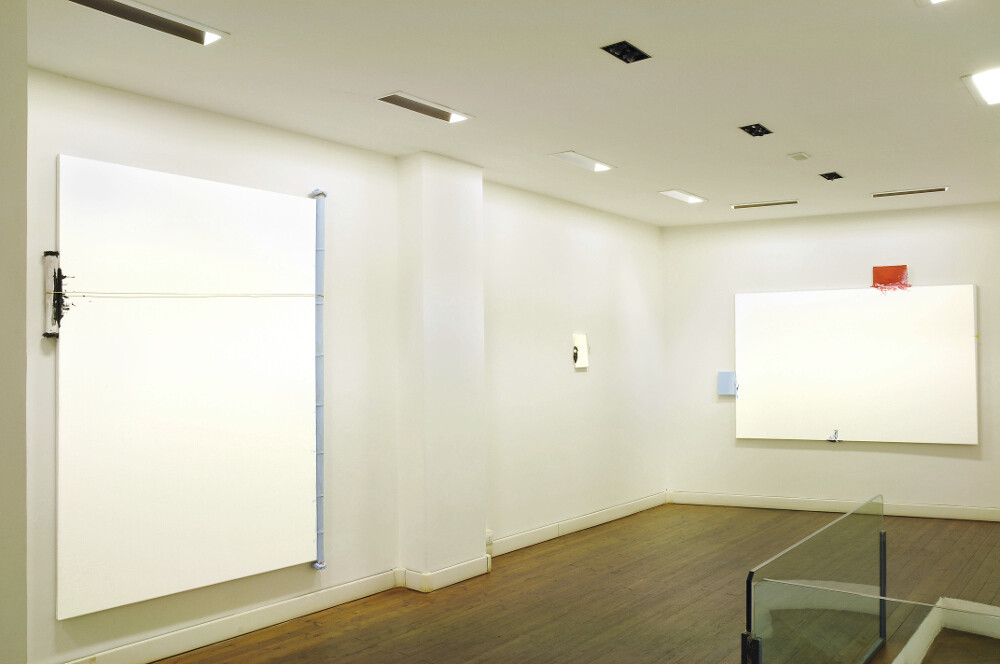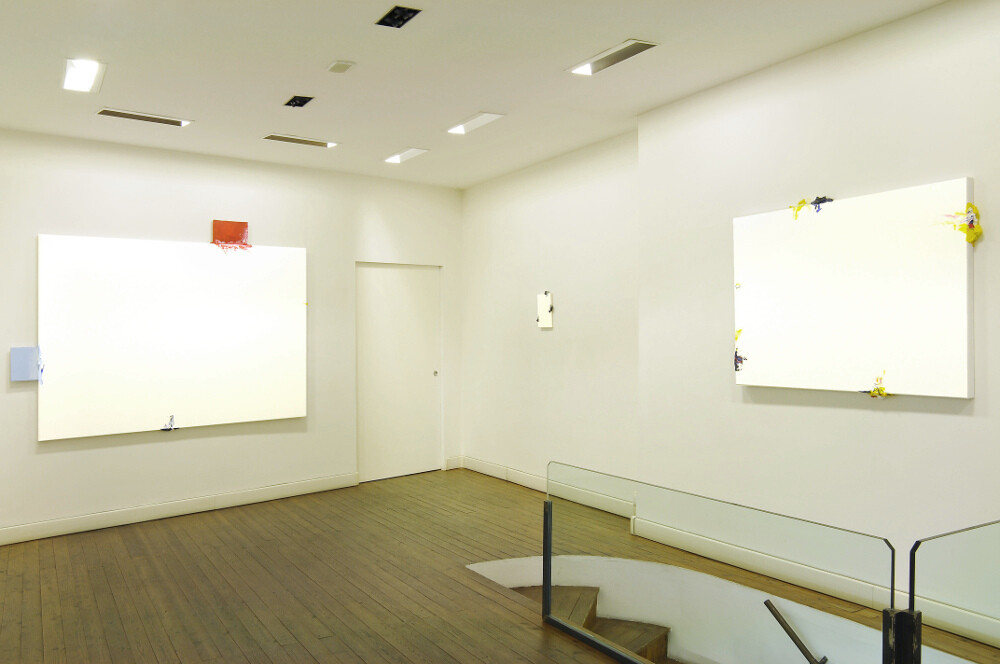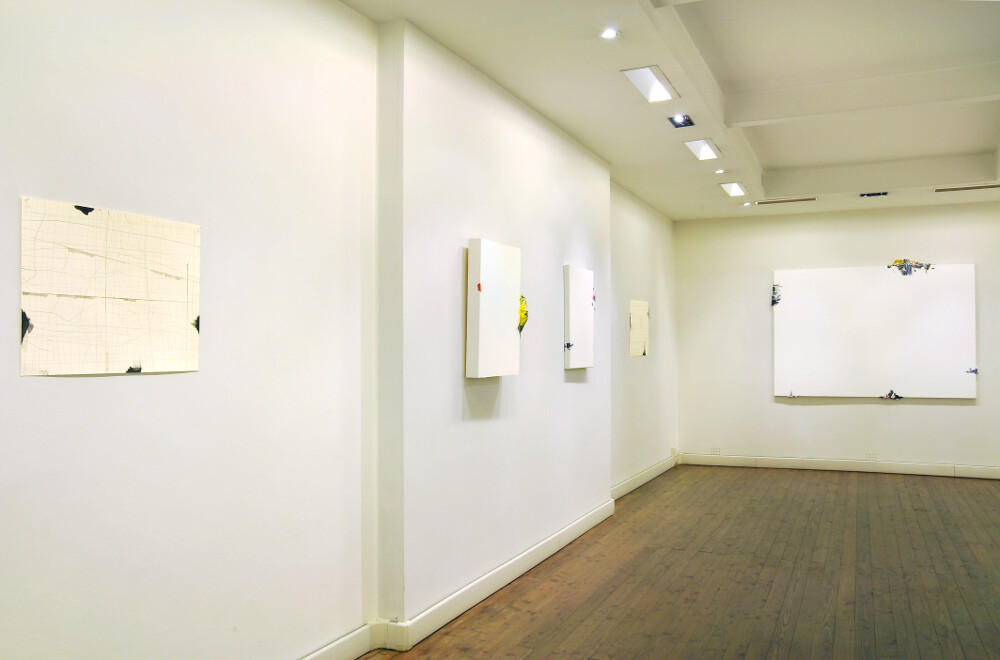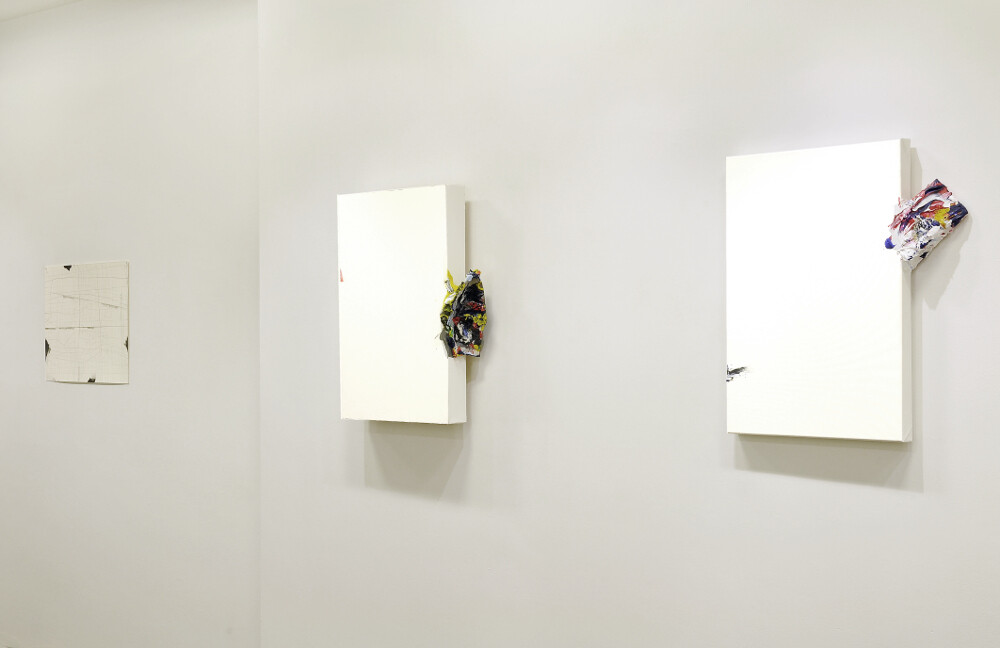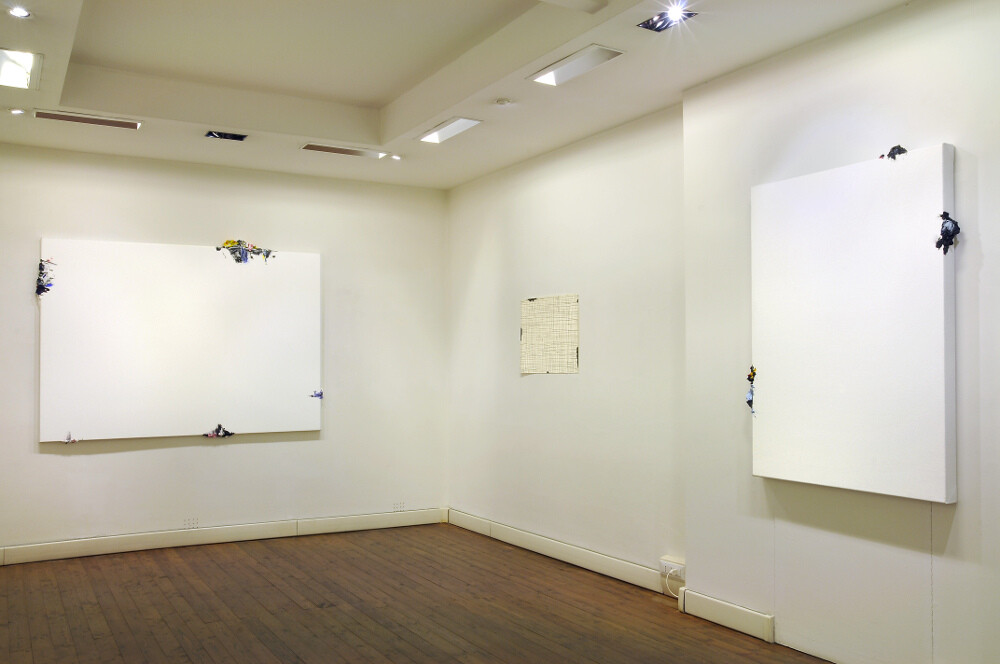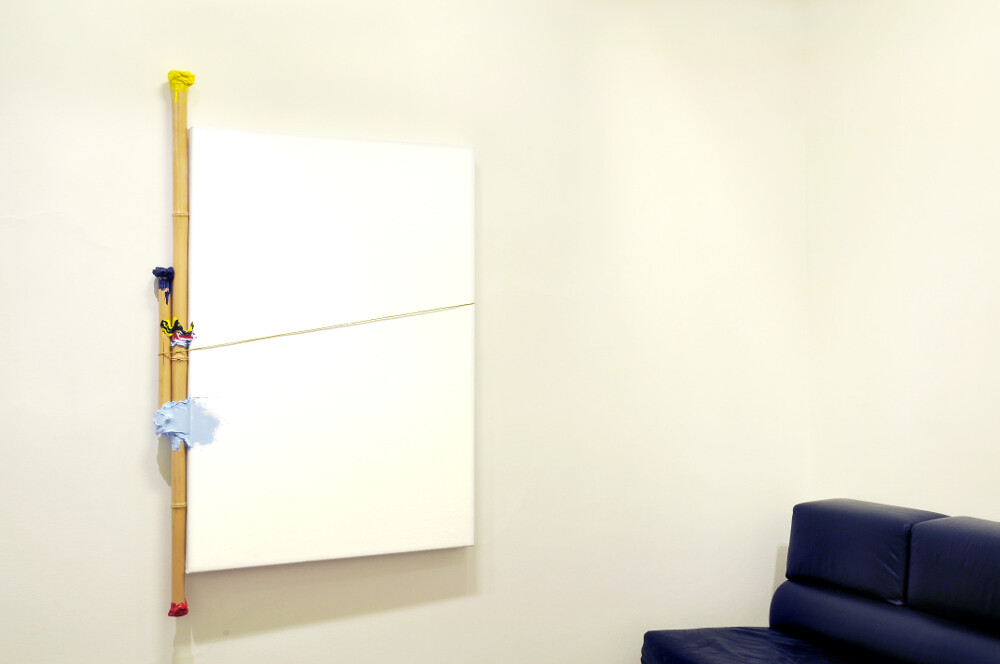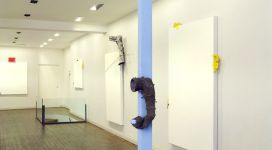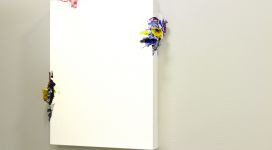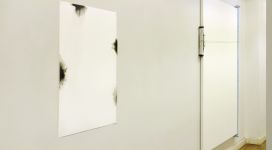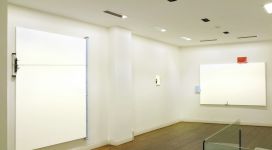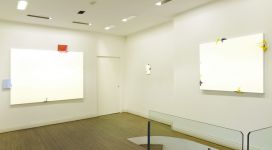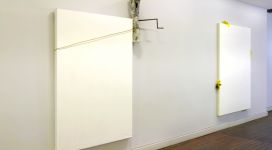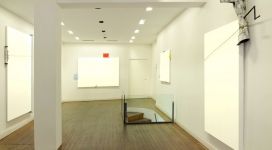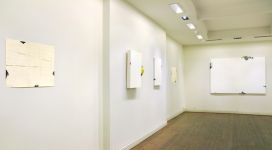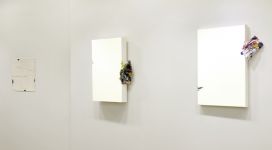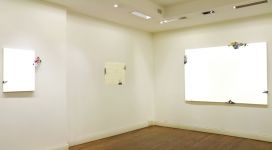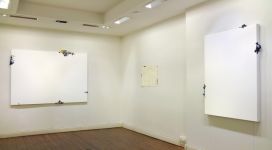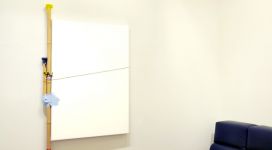| RENATO RANALDI | Biography | |
| Fuoriasse Fuoriquadro | Catalogs | |
| curated by BRUNO CORA’ and WERNER MEYER | ||
| 18 February – 15 April 2011 |
Five years after the last exhibition, Galleria Il Ponte, in cooperation with Göppingen Kunsthalle, is dedicating a new show to Renato Ranaldi with a display of fifteen Fuoriquadro (Out-of-Frames) works-paintings and an installation Axis.
They are a new series of pieces created by the artist in his last three years of work. In them the “sculpted painting” which has been part of his work for many years is pushed towards the outside of the prepared white canvas surface and is concentrated in some points on the edges of the frame. Clots of colour created through the slow accumulation of successive brush strokes cling onto the frame. “The frame separates the image from everything that is not part of it”: in these canvases, lacking in signs and colour, the image is none other than the empty surface and the non-image is the plastic painting concentrated on the edges.
With his out-of-frames Ranaldi relinquishes the narrative element of the image and declares that the painting is not what is found on the surface of the picture. Thereby he establishes a new plastic-spatial concept. “…I have produced and projected the symbolic life of a vision: I let myself be taken in by it and the more I allowed myself to become trapped, enclosed inside the actual work itself, the more I yearned for the outside, and tried to grasp what the work was keeping from me. A work of art lies its declaration alone. […] the work takes me from its physical centrality to the ideal, external centrality of its own secret. It takes me towards an emptiness where, in the absence of signs, signs proliferate…”
At the origin of the spatial concept of the out-of-frames is the concept of “on the edge” (bilico), which runs through all the artist’s work, his intention being to place things in a “state of risk [that] captures the attention”.
At the basis of these new works is the set of “winding sculptures” (2003) in which the barycentre of the work is unbalanced by Ranaldi’s insertion of parts of bronze fusions with handles on the edges of canvases. The same set also provides the basis for the works that Ranaldi entitles Axis (2008), in which bronze fusions tied with wire grasp the vertical axes of royal blue painted wood or bamboo cane.
